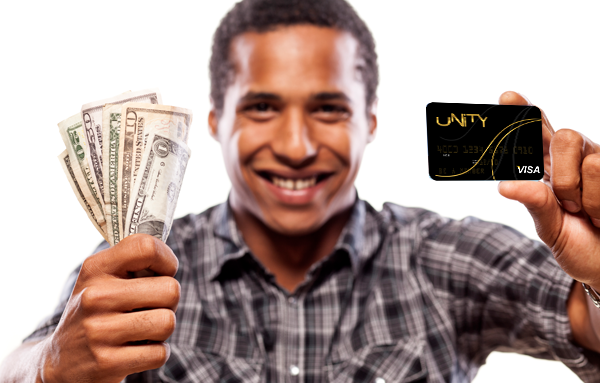Being money savvy isn’t just about how much you make versus how much you save. It’s also about how you manage that money. What does that mean?
It means spending wisely and knowing when it’s better to pay cash or to charge a purchase. Why does that matter?
Each option has pros and cons and choosing the right one could better serve you in certain situations.
Benefits of Paying with Cash
Paying cash to make purchases has the following benefits:
- Cash is accepted everywhere. While you might come across businesses that don’t accept credit cards, you won’t find one that doesn’t accept cash. In fact, it’s the easiest way to buy low-priced items because some merchants require customers to spend a minimum amount to use a credit card.
- Cash is accessible to anyone. To use a credit card, you have to apply and be approved. Unfortunately, some people get rejected. This results in having to build – or rebuild – credit before applying for a secured Visa card, for instance. On the other hand, anyone can use cash.
- It’s much easier to stick to a budget. If you don’t have cash, you can’t spend it. Choosing to use cash only can help you stick to a budget and prevent you from going into debt.
Drawbacks of Using Cash
It’s important to weigh the cons of any situation and using cash is no exception. It comes with the following drawbacks:
- Online retailers only take electronic payments. In some cases, a product may only be available online, or you may find a reduced price online but can’t buy the item because you only shop with cash. (You could, of course, use a debit card.)
- Cash can’t help you build credit. Opening a credit card and using it wisely is the best way to build good credit. You can’t do this if you only use cash.
- It has no security. Many credit card companies monitor your spending and alert you of any charges that seem out of character. They may even credit your account if it’s used unlawfully. If your cash is stolen, you’re out of luck.
- It may be too easy to use cash if it’s in your pocket. By carrying a lot of cash around, you may be tempted to spend it. Small purchases can add up. Even if you choose a prepaid debit card, using and withdrawing money may be too quick and easy.
When should you use cash? If you have a hard time sticking to a budget or tend to overspend, using cash may be a wise choice.
Benefits of Paying with a Credit Card
Credit cards can be great, but they can also be dangerous, depending on your spending habits. Let’s start by looking at some benefits of credit cards:
- Your purchases are documented. You can use your credit card statement to track your spending. Do you spend too much on meals or other items? A review at the end of the month may alert you to over spending.
- You can build credit. Using a credit card, including a a href=”https://www.oneunited.com/unity-visa/”>secured Visa card, and paying your bill on time can improve your credit score, which will be helpful when you apply for a mortgage or auto loan.
- You can stretch out your payments. For large ticket items, such as an appliance or computer, that you may need today, you can purchase and then make payments over a period of time. Credit cards can help you finance emergency purchases.
Drawbacks of Credit Cards
Using a credit card has some disadvantages. For example:
- It’s easy. When you’re given a high credit limit, it’s tempting to just swipe your credit card every time you make a purchase. If you aren’t careful, you could wind up in debt.
- Missed payments can affect your credit score. While using credit wisely can improve your credit score, late payments and high balances have a negative impact, resulting in a lower credit score that can affect you when you apply for things like a mortgage.
- Some come with annual fees. Before signing up for a credit card, it’s important to check the annual fee and any other fees. And if you don’t pay your entire balance each month, you’re probably getting hit with interest charges.
If you need to build your credit, or rebuild bad credit, using a secured credit card such as the UNITY Visa Secured Card may be a good idea. Just be sure to buy only what you can afford, and pay off your entire balance each month or make timely payments to improve your credit score.
Being smart with money is much more than simply knowing how much you make and how much you can spend. It’s also about knowing whether cash or credit is best and how to utilize the benefits of each to your advantage.


















